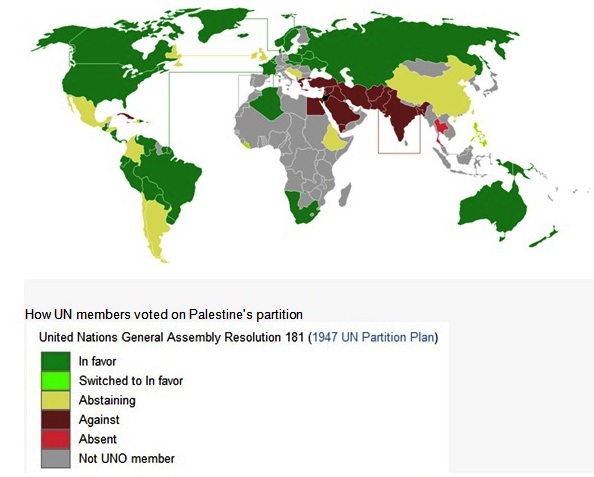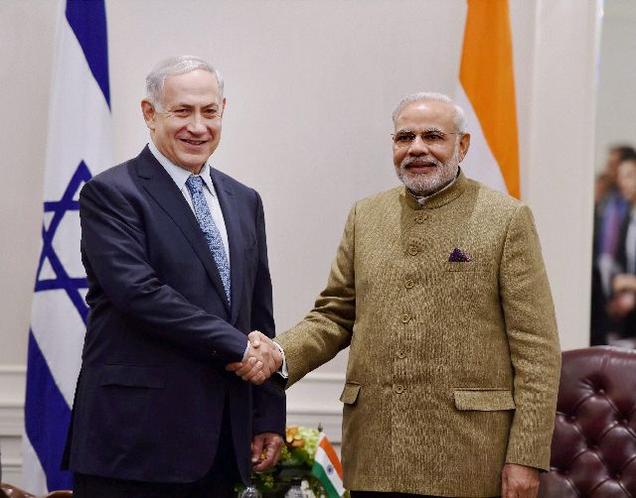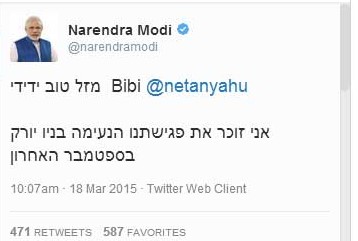Historic is a word used far too often to describe events, but the visit of Indian Prime Minister Narendra Modi to Israel truly justifies the expression. It is historic for numerous reasons, firstly, due to it being the first ever visit of an Indian Prime Minister to Israel. But secondly, because it is the pinnacle of what has been a remarkable rise in Indian-Israeli relations.
India has traditionally been unfriendly towards Israel. It voted against the 1947 UN Partition Plan, and although it recognized the Jewish state in 1950, it did not have an embassy in the country until 1992. Among other factors, India’s traditional cold stance on Israel was related to the country having a large Muslim population, which has been a strong voice against normalizing relations with Israel, and forced Indian leaders to tread carefully. And secondly, at the time of India’s formation, in order to gain vital support from the Muslim League against the British, the leaders of the future Indian state took an anti-Zionist position.

As a result, whether it be in the United Nations or other international bodies and forums, India up until recently had always voted against Israel, and in 1987 India became the first non-Arab country to recognize the ‘State of Palestine’. Yet despite the fact diplomatic relations were so cold, Israel frequently sold India weapons for its various conflicts with China and Pakistan.
It wasn’t until 1992 that India finally opened up an embassy in Israel, largely due to pressure from the US, yet this didn’t particularly lead to a warming of relations.
However, with the turn of the century, Indian-Israeli cooperation reached new heights with India’s Foreign Minister visiting Israel for the first time in 2000, and Israel providing even more military help to India. Improved relations with India were finally out in the open when Israeli PM Ariel Sharon became the first Israeli Prime Minister to visit the South Asian country. Despite this, India still continued its anti-Israel stance in the United Nations.

All this changed in 2014 with the election of Narendra Modi. Attitudes in the UN changed, and India has started to show a policy of Abstaining on matters relating to Israel, a break in decades of aligning with Arab states. Moreover, Indian-Israeli defense cooperation has gone from strength to strength, with India becoming the largest buyer of Israeli military equipment, and Israel becoming India’s second largest supplier.
And unlike prime ministers before him, Modi has been willing to publicly share his support and relationship with Israel, frequently using Twitter as a way of doing so, including tweeting in Hebrew.

Modi’s visit to Israel this week is the curtain piece of a remarkable rise in relations between Israel and India. Despite India having a population that is often hostile to Israel, the nation is starting to become a reliable friend to the Jewish state, and the visit of Modi can be seen as yet another win in a successful year for Israeli diplomacy.
Contributed by Daniel Kosky, CAMERA Intern.

